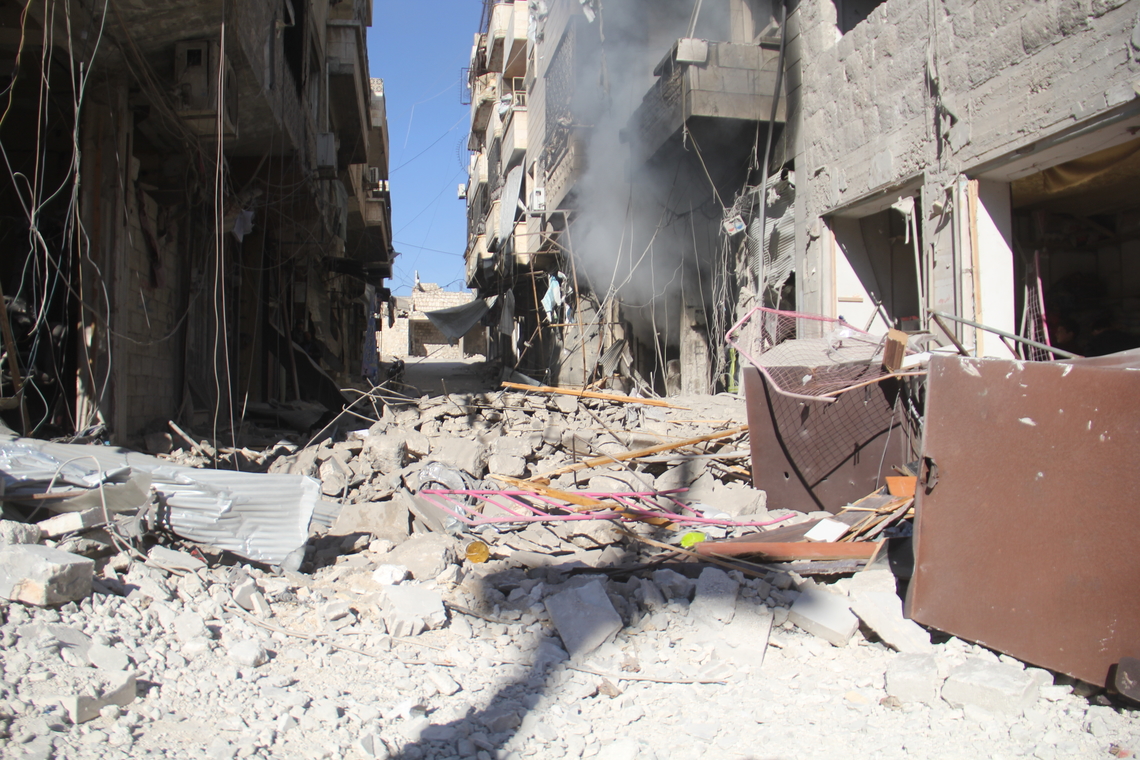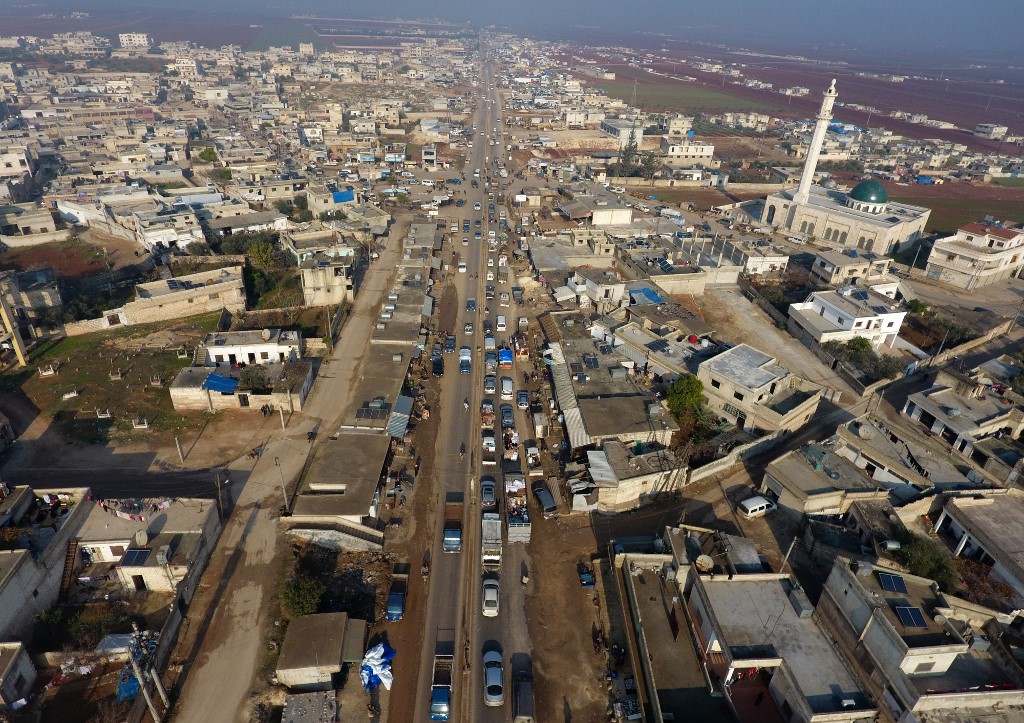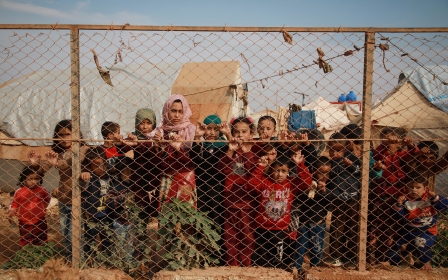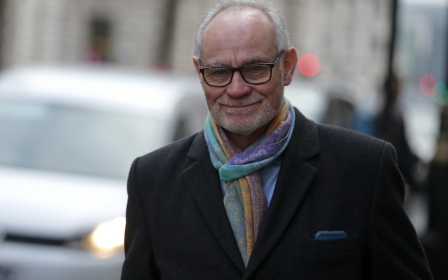Assad bombardment in Idlib triggers mass exodus towards closed Turkish border
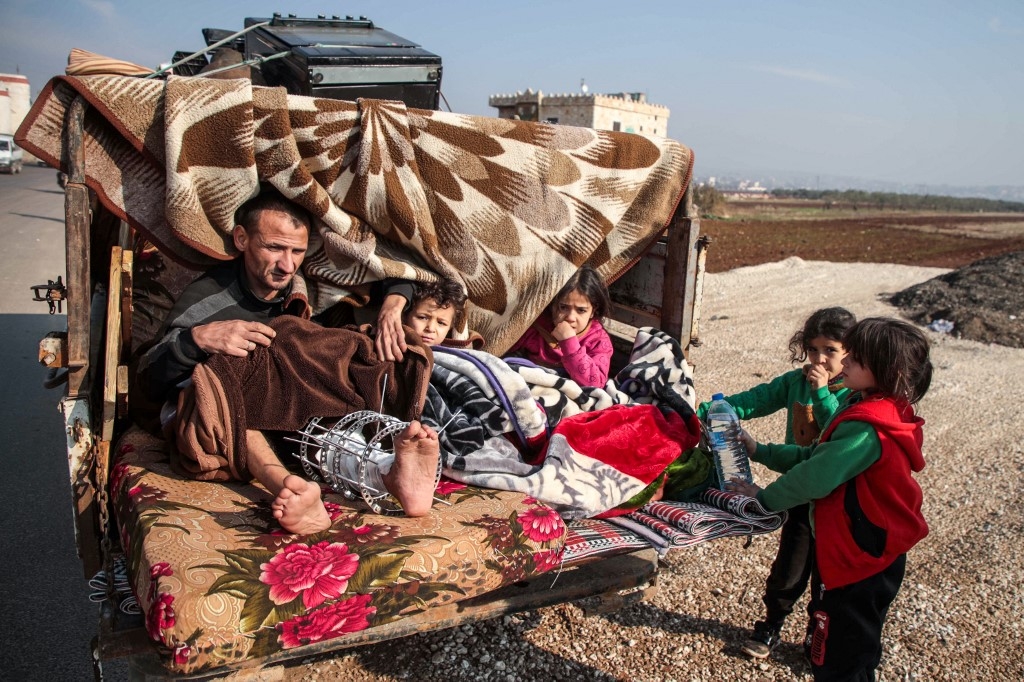
Leaning out the car window, Omar Kashto could see the warplanes hovering over the highway. The 31-year-old media activist heard reports they were targeting vehicles leaving Maarat al-Numan and was terrified his family would be next.
“Why on earth are the regime and the Russians preventing civilians from fleeing?” Kashto asked, having made it safely to his relative’s house in the village of Killi, some two hours away to the north of Idlib province.
Backed by Russian airpower, forces loyal to President Bashar al-Assad are advancing on the town of Maarat al-Numan from the east and the southeast and have so far captured a string of villages in the surrounding countryside.
“I hope the families inside make it out alive before the regime captures them”
- Omar Kashto, Idlib resident
On Monday, the Syrian army took Jarjanaz, the largest town in Maarat al-Numan’s eastern countryside, according to the U.K.-based Syrian Observatory for Human Rights.
In just five days, more than 100,000 people have fled the heavy bombardment on their neighbourhoods, the International Rescue Committee said Monday. Half a million more could flee in the coming weeks, warned the group.
“Maarat al-Numan is a ghost city now,” Kashto said. “I hope the families inside make it out alive before the regime captures them.”
The Syrian Civil Defense, also known as the White Helmets, says this month alone it’s documented the deaths of at least 144 people, including 34 children — the result of more than 700 air strikes, as well as artillery fire and barrel bombs.
Warplanes and artillery shelling have targeted the roads leading to and from Maarat al-Numan. Activists tell Middle East Eye that air strikes hit two cars and a tractor carrying several displaced families along the M5 highway Sunday morning, killing 10.
“The situation is beyond comprehension,” said Obada al-Zikra, director of the Maarat al-Numan Civil Defense. According to al-Zikra, some 60,000 people have fled the city in recent days.
“The regime troops are only five to eight kilometres away from us now. We’ll leave the city too if the regime gets any closer,” he added.
Assad, whose forces now control roughly two-thirds of the country, has long vowed to recapture every inch of Syria. In late summer, his troops wrested control of the strategic city of Khan Sheikhoun, as well as stretches of the M5 highway linking the capital of Damascus to the northern city of Aleppo.
Recapturing Maarat al-Numan, which is situated along that highway, would help Assad restore a once-critical trade route.
Home to some three million civilians, Idlib province was a last refuge for civilians and rebel fighters who had evacuated following government offensives elsewhere in the country. After more than eight years of war, it is the last remaining swathe of Syria still held by the opposition.
The northwestern enclave also hosts a number of rival opposition factions including Turkey-backed rebels and the former al-Qaeda affiliate in Syria, Hayat Tahrir al-Sham.
Under the pretext of fighting terrorism, the Syrian government launched a major bombing campaign in late April that according to the United Nations killed more than 1,000 civilians and forced an estimated 600,000 to flee their homes.
The Syrian and Russian bombardment of opposition towns and villages dealt a major blow to the region’s health infrastructure. The UN said 51 health facilities had been damaged as a result of attacks, as well as 87 schools.
Damascus and Moscow both deny carrying out indiscriminate attacks against civilians and say they are targeting extremists operating in the area.
A new wave of refugees
But aid agencies warn of a humanitarian catastrophe that could displace hundreds of thousands more civilians should the attacks continue.
The latest wave of refugees heading north have few options beyond the overcrowded displacement camps along the Turkish border. Unable to afford a place to stay, many Idlib residents are sheltering in tents or in the outdoors beneath trees.
Turkish President Recep Tayyip Erdogan has warned that his country, which already hosts an estimated 3.7 million Syrian refugees, cannot handle a new wave of displaced people at its doorstep.
Ankara closed its once-porous, 900-kilometre border to most Syrians in 2015 and has proposed resettling refugees already living in Turkey in a buffer zone previously held by Kurdish fighters in northeast Syria.
Meanwhile, in a further blow to Idlib’s displaced civilian population, Russia and China blocked a United Nations Security Council resolution Friday that would have extended cross-border aid deliveries to millions of Syrians for another year.
Following the vote, U.S. Secretary of State Mike Pompeo said the two countries had “blood on their hands.”
Ismail al-Atrash, a paramedic with the Al-Sham Humanitarian Foundation, has been working around the clock this week to bring an estimated 90 injured people to hospitals in Maarat al-Numan.
Al-Atrash described arriving at the scene of an air strike on Sunday to find an entire family of five trapped beneath the rubble. By the time he and the other paramedics got them to the doctors, it was already too late.
“We waited until the bombing slowed in the morning and then handed them to the White Helmets to bury them in the cemetery,” he said.
With the city nearly empty, al-Atrash and the staff are considering evacuating too. If there isn’t time to take their medical equipment, they’ll set fire to what they leave behind.
“I feel like we are living in hell,” he said.
Middle East Eye propose une couverture et une analyse indépendantes et incomparables du Moyen-Orient, de l’Afrique du Nord et d’autres régions du monde. Pour en savoir plus sur la reprise de ce contenu et les frais qui s’appliquent, veuillez remplir ce formulaire [en anglais]. Pour en savoir plus sur MEE, cliquez ici [en anglais].


